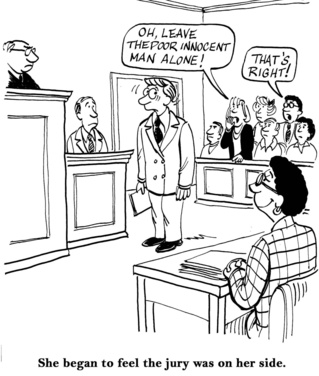What Does Prove Beyond A Reasonable Doubt Mean?

Evidence in Texas Criminal Cases
If a person is charged with a crime they are “presumed innocent” and can only be convicted when the prosecution proves the crime “beyond a reasonable doubt.” Even though a person has been accused, arrested, jailed, or charged with a crime – a jury is not supposed to assume a person has done something wrong.
One jury member may need more evidence than another jury member to be convinced “beyond a reasonable doubt.” However, a lawyer cannot tell jury members that they should require more evidence to be convinced “beyond a reasonable doubt” based on how serious a case is.
The United State’s Supreme Court has decided that it violates your “due process” rights for a jury to require the accused to prove anything. The State has the burden of proof. They must prove that every part of the crime is beyond a reasonable doubt, whether the evidence is circumstantial or direct.
What is the difference between circumstantial and direct evidence?
Direct evidence can prove something by itself and does not need other evidence. Circumstantial evidence is proof of one thing (or several things) that you may use to conclude additional evidence exists.
Eyewitness testimony can be either direct or circumstantial evidence. For example, a witness saying that he saw the accused sexually assault the victim can be considered direct evidence. However, a witness saying that he saw the accused enter the victim’s apartment, heard the victim scream for help, and then witnessed the accused leave with blood on his clothes can be considered circumstantial evidence. The witness did not truly “see” the accused assault the victim, it was just inferred.
The Proof Is In The Pudding
The prosecution does not have to have direct evidence in any criminal case. Even without any direct evidence they can prove a case by just showcasing that overwhelming circumstantial evidence exists. Just because you have a good defense does not mean you will be found “not guilty” by a jury. A good criminal defense lawyer worth their salt must present evidence, question witnesses and argue in a way that makes jurors understand that the prosecution has not met their goal to convict you.


